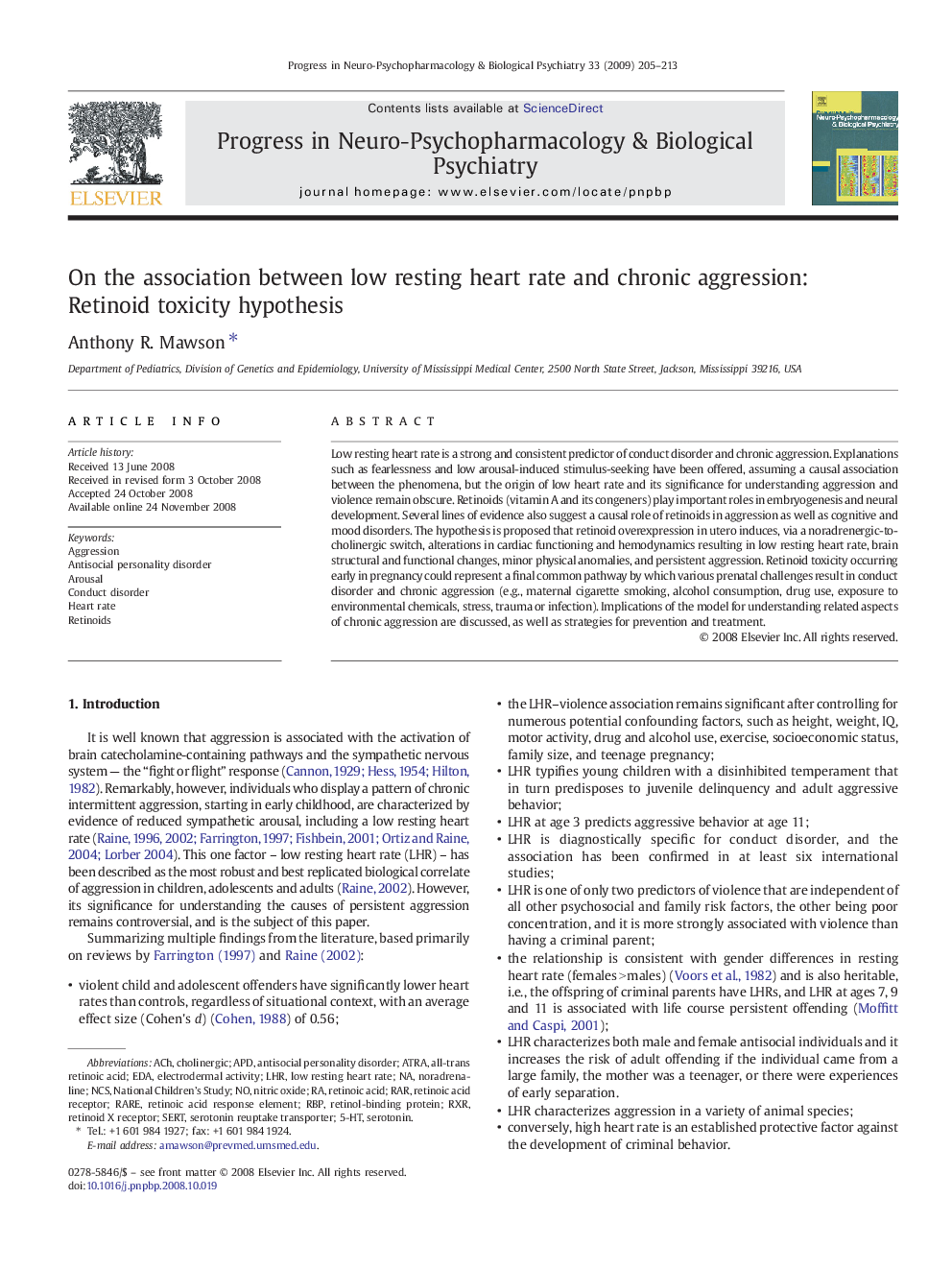| کد مقاله | کد نشریه | سال انتشار | مقاله انگلیسی | نسخه تمام متن |
|---|---|---|---|---|
| 2566396 | 1128082 | 2009 | 9 صفحه PDF | دانلود رایگان |

Low resting heart rate is a strong and consistent predictor of conduct disorder and chronic aggression. Explanations such as fearlessness and low arousal-induced stimulus-seeking have been offered, assuming a causal association between the phenomena, but the origin of low heart rate and its significance for understanding aggression and violence remain obscure. Retinoids (vitamin A and its congeners) play important roles in embryogenesis and neural development. Several lines of evidence also suggest a causal role of retinoids in aggression as well as cognitive and mood disorders. The hypothesis is proposed that retinoid overexpression in utero induces, via a noradrenergic-to-cholinergic switch, alterations in cardiac functioning and hemodynamics resulting in low resting heart rate, brain structural and functional changes, minor physical anomalies, and persistent aggression. Retinoid toxicity occurring early in pregnancy could represent a final common pathway by which various prenatal challenges result in conduct disorder and chronic aggression (e.g., maternal cigarette smoking, alcohol consumption, drug use, exposure to environmental chemicals, stress, trauma or infection). Implications of the model for understanding related aspects of chronic aggression are discussed, as well as strategies for prevention and treatment.
Journal: Progress in Neuro-Psychopharmacology and Biological Psychiatry - Volume 33, Issue 2, 17 March 2009, Pages 205–213